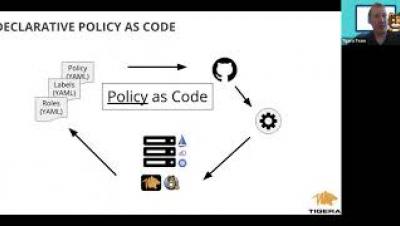Security | Threat Detection | Cyberattacks | DevSecOps | Compliance
Technology
Leaky O365 Links: Accidental Exposure in O365 Link Sharing
Did you know that the default “copy link” option in O365 personal accounts generates a public shared link with edit permissions? In this edition, we will cover how link sharing in O365 can lead to the accidental internal and public exposure of sensitive data.
Taking Care of Your Data Responsibilities in a Shared Responsibility Model in the Cloud
“Send it to the cloud” has been the increasingly common response over the years for dealing with the issue of how to handle massive amounts of data. On one side, I understand it. Another infrastructure owned by a third party who has teams dedicated to implementing security by design, continuous testing and validation – this all sounds attractive.
Cloud security
There’s no doubt that the adoption of public cloud deployments has accelerated for most organizations recently. In fact, according to metrics released by Oracle recently, nearly half (49%) of all respondents to the Oracle and KPMG Cloud Threat Report expect to store most of their data in a public cloud by the end of 2020. Effectively managing the security and compliance of public cloud deployments can be tricky for many organizations.
Most Popular HIPAA-Compliant Cloud Storage Services
Cloud computing provides undeniable benefits for storing and accessing electronic health records. Files stored in the cloud are accessible anytime and anywhere from any device, which makes it easy to share critical medical information between healthcare workers. But is cloud storage secure enough to store, access and transfer sensitive personal and medical information?
Automated Certificate Provisioning and Management with KeyScaler and Azure IoT Central
How to Implement Network Policy in Amazon EKS to Secure Your Cluster
License Compatibility: Combining Open Source Licenses
Free and open source software (FOSS) components have become the basic building blocks of our software products, helping today’s developers build and ship innovative products faster than ever before. Many developers tend to forget that while open source licenses are free, they still come with a set of terms and conditions that users must abide by.
Breaking Down Risky Open Source Libraries by Language
You work hard to produce quality applications on tight deadlines, and like every other development team out there, that often means relying on open source code to keep projects on track. Having access to plug-and-go code is invaluable when you’re racing the clock, but the accessibility of open source libraries comes with a caveat: increased risk.
Survey: 76% of IT Pros Say It's Difficult to Maintain Security Configs in the Cloud
Cloud misconfigurations are no laughing matter. In its “2020 Cloud Misconfigurations Report,” DivvyCloud revealed that 196 separate data breaches involving cloud misconfigurations had cost companies a combined total of approximately $5 trillion between January 1, 2018 and December 31, 2019. The problem is that those costs could be even higher; as reported by ZDNet, 99% of IaaS issues go unreported.










